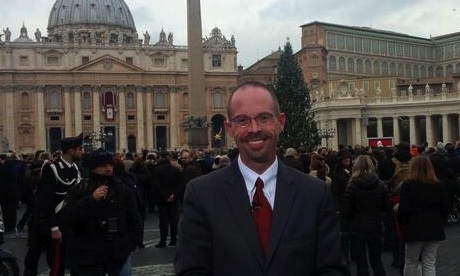Heading into an Oct. 5-19 Vatican summit of bishops to discuss the family, the single most controversial question was whether Catholics who divorce and remarry outside the Church ought to be allowed to receive Communion.
Since the meeting reaches its halfway mark Sunday, it’s logical to wonder where things stand.
Alas, the answer is: We really don’t know.
To be sure, the divorce and remarriage debate is hardly the only iron in the fire at this Synod of Bishops on the family.
African prelates have talked about the challenges of polygamy and witchcraft, while Middle Eastern voices have pointed to the impact of war on family life.
Nobody’s talking about Catholic divorce
Westerners have pondered how to overcome a pervasive cynicism about making a lifetime commitment to anything.
In addition, there are a couple of things we actually do know about the Communion question.
One is that there’s no push for changing Church teaching that marriage is for life. As Archbishop Diarmuid Martin of Dublin, Ireland, put it Saturday, “Nobody’s talking about Catholic divorce.”
Another is that there’s a growing consensus around the idea that annulments need to become faster and simpler.
An annulment is a declaration that a union was never really a marriage, even if it involved a Church wedding, because it failed to meet one or more of the tests for validity, such as truly intending to make a lifetime commitment.
Once a person has an annulment, they’re free to marry again in the Church.
Yet on the heart of the matter – whether Catholics who divorce and remarry outside the Church without an annulment should or shouldn’t be able to return to Communion and the other sacraments of the Church – there’s no way right now to tell where the synod stands.
Significant diversity of opinion
There’s been sharp debate, occasionally with a fairly nasty personal edge.
Some of the testiness has been directed at retired German Cardinal Walter Kasper, who floated the idea of allowing the divorced and remarried to return to Communion after a period of penance back in February.
(Kasper was asked to give that talk by Francis, so to some extent, attacks on him may be a proxy for how people feel about the pope.)
On the other hand, Archbishop Paul-André Durocher of Quebec pointed out during a Vatican briefing this week that only those bishops who feel most passionately one way or the other have spoken so far, which means that the majority has yet to show its hand.
On Friday, another German cardinal, Reinhard Marx of Munich, tried to articulate a consensus with the phrase “Not for no one, and not for everyone.”
His point was that not every divorced and remarried Catholic is the same – there’s a difference, for instance, between someone who walked out on their first marriage, and someone who was abandoned.
Marx was suggesting a case-by-case approach that would result in some, but not all, divorced and remarried Catholics being welcomed back to Communion.
Italian Cardinal Francesco Coccopalmerio, a top church lawyer, offered the example of a woman who married a man outside the Church whose first wife walked out on him, leaving him to care for three children.
“She cannot abandon that union or those children,” Coccopalmerio said. “In these cases, we have to do something.”
Yet for every Marx or Coccopalmerio, there’s a Cardinal George Pell of Australia. Continue reading
